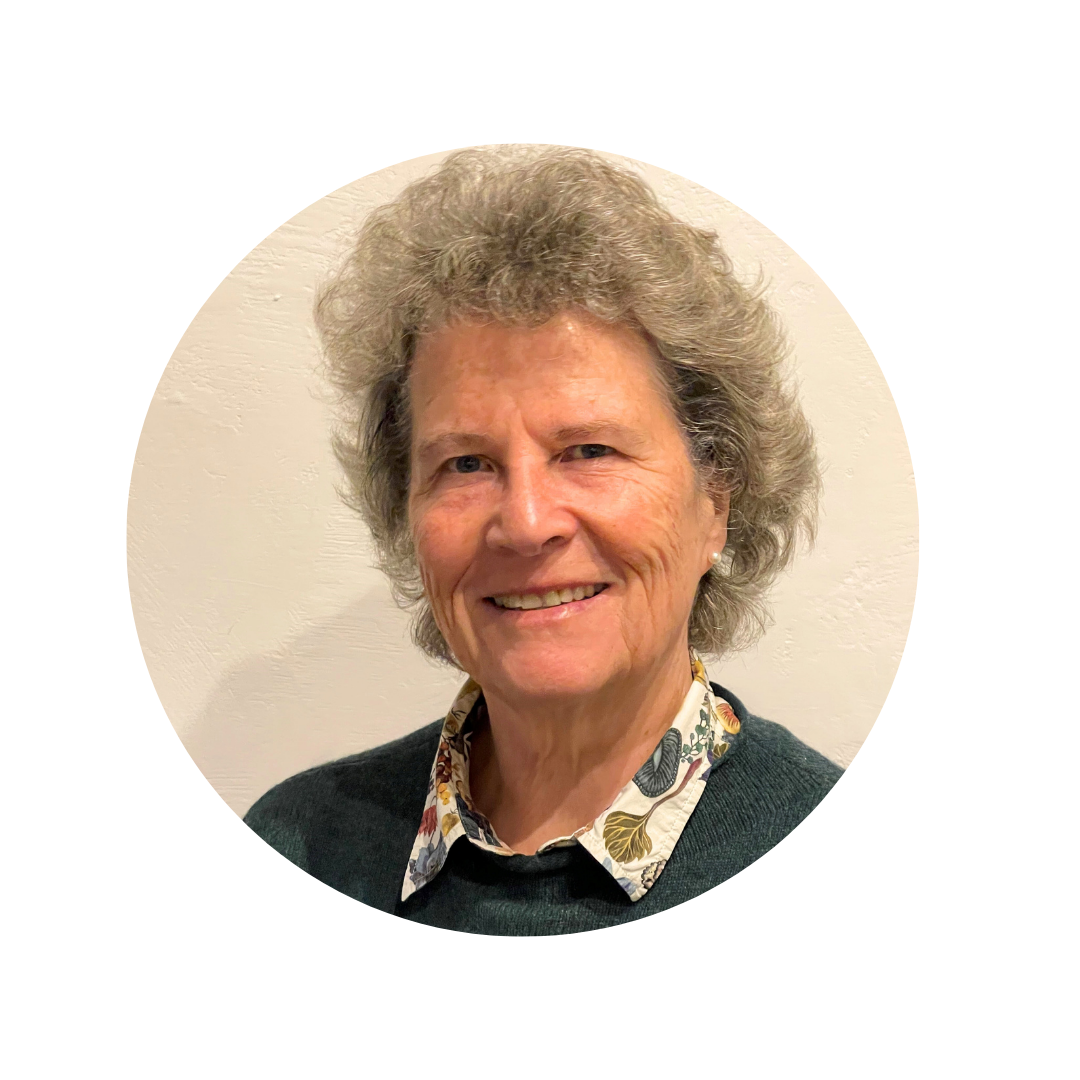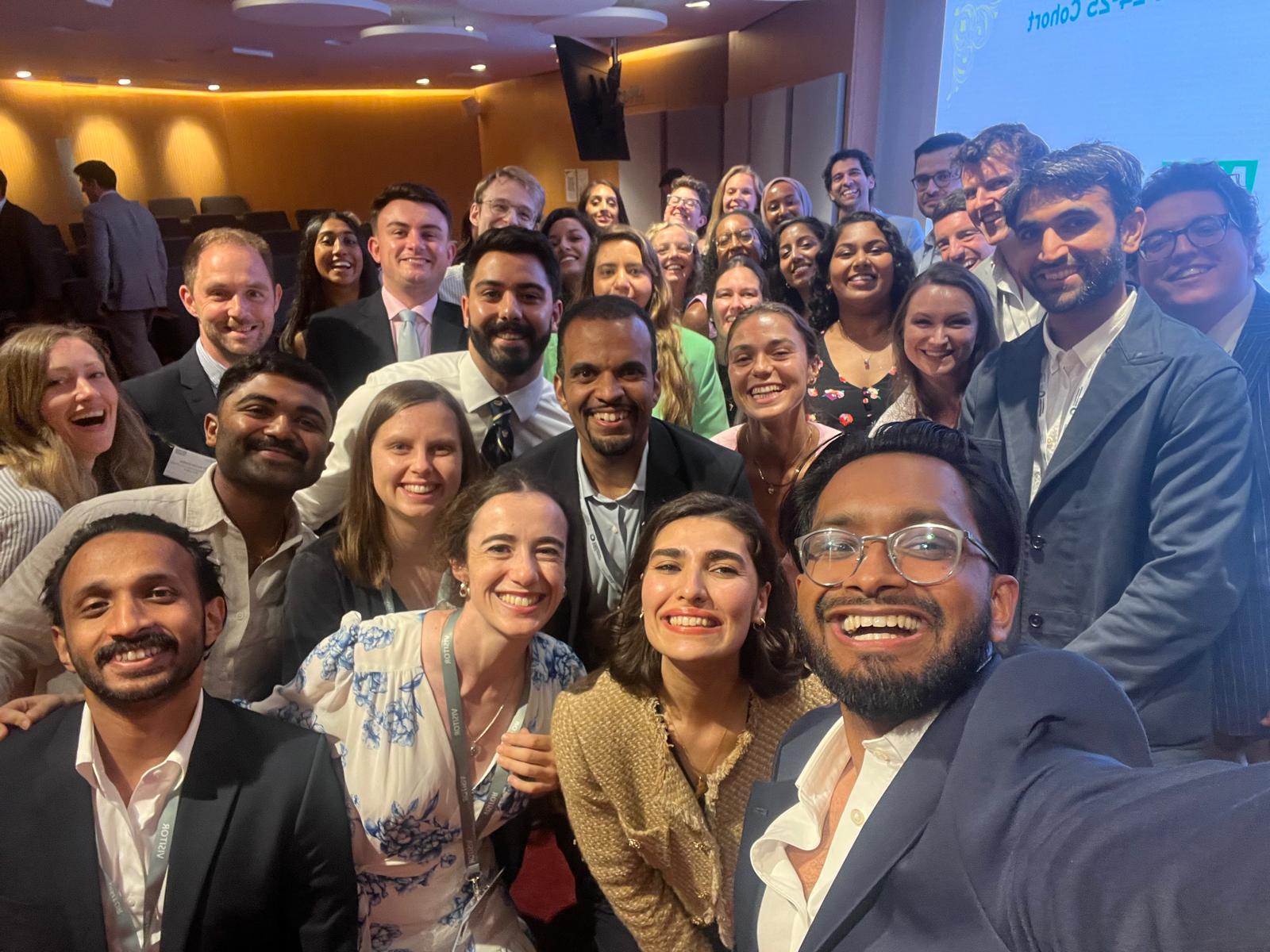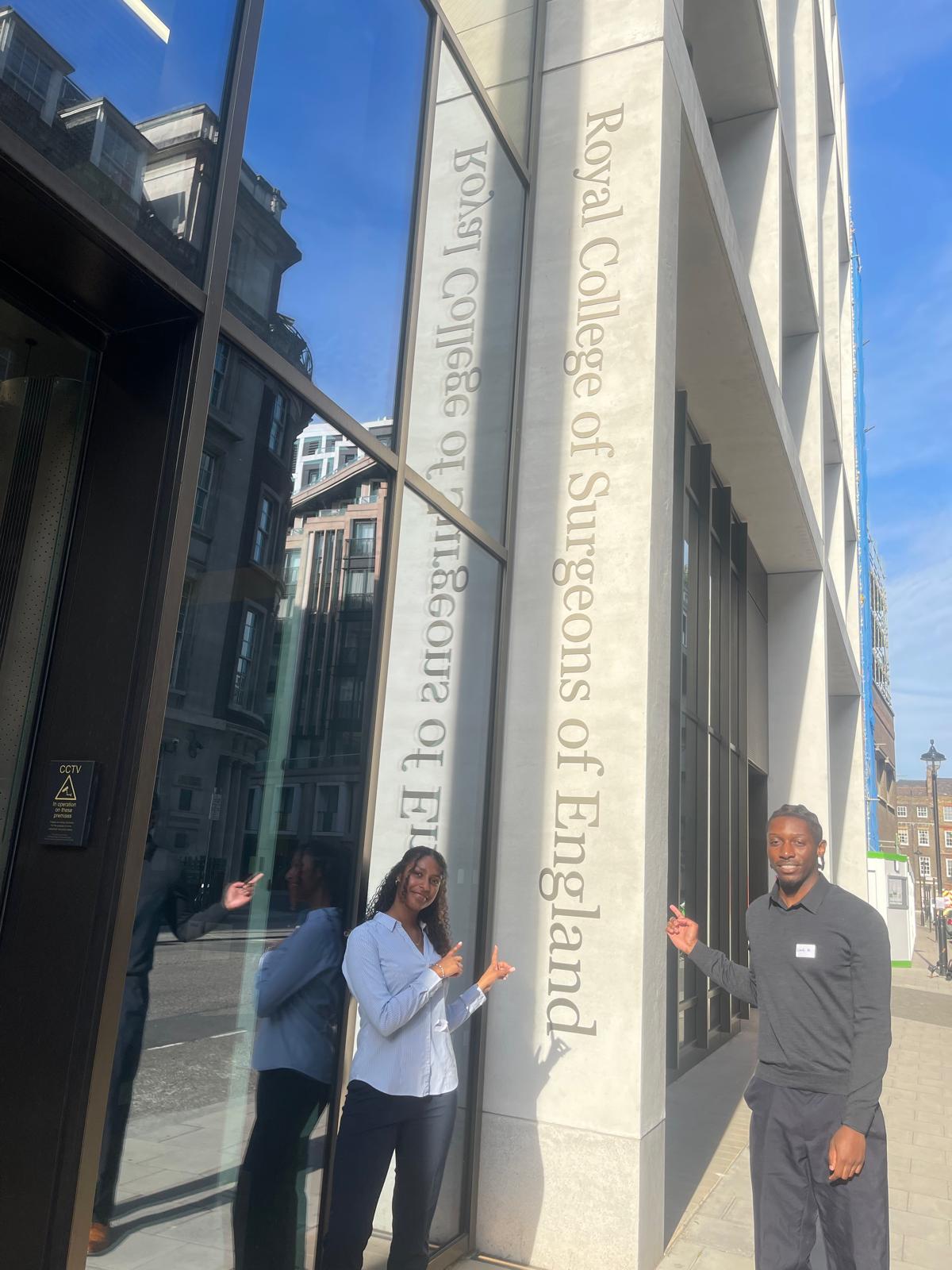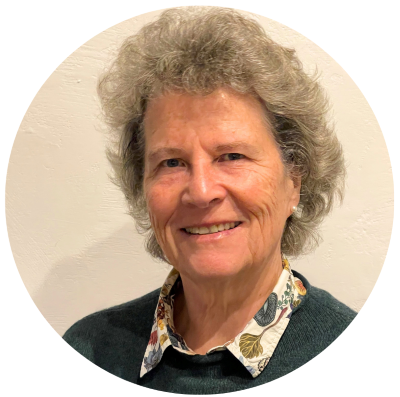
In conversation with Trisha Greenhalgh, FMLM's new Senior Fellow
Tell us a little bit about yourself Trish and what you are currently working on?
"My name is Trish Greenhalgh. I'm a professor of Primary Care Health Sciences at the University of Oxford and actually I'm now a full-time academic although for a long time, nearly 40 years, I was also a practicing clinician - mostly general practice. I did also train in diabetes and I've done work in other conditions such as long covid but now I'm a full-time academic. I'm the head of Research Unit called the Interdisciplinary Research in Health Sciences unit which is shortened to IRIS and the unique selling point of IRIS is that we are interdisciplinary, we're interprofessional, so we have doctors, nurses, pharmacists, we've got a paramedic we've got dentists, lots of different health care professionals but also anthropologists, sociologists, computer scientists, a health economist and we've got a philosopher - lots of different backgrounds. We all come together in a melting pot around practical challenges and we do highly applied research and we say 'come on let's get our heads around this problem, think about it in lots of different ways' and then do creative and wacky research which is great fun."
Why did you go into medicine/healthcare? What attracted you to the profession?
"My mother tells me that I wanted to be a doctor from the age of three and I think that was because the kid next door had been in hospital with appendicitis and then we went round to visit him and take some gift and the kid threw up and it was all terribly exciting you know this vomiting kid in a pair of hospital pyjamas. I thought 'I want a piece of that, that looks really fun!'. Ever since then I wanted to be a doctor, so it was before I started school and it was it was just fascination with illness and things like that."
As a new FMLM Senior Fellow, can you tell us what good clinical leadership means to you?
"I'm ambivalent about the whole idea of branding any aspect of what I do as leadership. I've been in teams where I would question the style of the person leading and I think many of us got into leadership and are interested in leadership because we were being led in a way that we felt uncomfortable with. I've been involved in teams where leadership was very hierarchical, where leadership was really about telling people what to do and making sure that they did it and because I'm a creative person and I don't like being micromanaged, I have tried in my own leadership to push back against that kind of approach to leadership.
"So having told you what I don't like in leadership, my approach to leadership is very simple: 'Hire good people and leave them alone!', I can't remember who said that. I think most people in the workplace want to do a good job, most people when they don't do a good job it's because something's missing - either resources or time or training - if people are happy and motivated and inspired in the workplace then they're much more likely to do a good job. If there's dialogue in both directions then again they're more likely to do a good job. Now, having said that, what you don't want is 20 people all doing a good job but not pulling together, so there does have to be some coherence, there has to be discussion, there has to be - I'm not going to use the phrase 'Shared Vision' because I don't think people in my unit have got a 'Shared Vision' in any simple way - but we do have a broadly coherent direction with different people doing different things. Some of them are more at the margin, some of them are more central and we are genuinely interested in others work, we know that the whole is more than the sum of the parts and we respect each other, we respect the different ways in which people approach a problem, the complimentary ways.
"So I guess the other thing about my own leadership style is it is quite 'female'. There was a was a book: Men Are from Mars, Women Are from Venus or Men Leaders are from Mars and you kind of resist that saying 'well hang on a minute, I don't necessarily have a female style just because I'm female', but actually I think I do. What I mean by female style is it's less hierarchical, it's more collaborative, I share uncertainty, I share power. Until very recently I co-led the unit with a colleague, and for reasons that I need not talk about, that colleague has now stepped down from co-leading and someone else is about to step up into co-leading the unit and then at some stage I will step down and someone else will job share the head of the unit. I really like job sharing leadership, we job share quite a lot of Principal Investigator (PI) roles in research as well. I pushed back to the National Institute of Health Research a few years ago when they said well we will allow co-PIs under exceptional circumstances and you have to make a case for it, so I pushed back and said 'well have you ever produced any evidence that a single lone hero PI does a better job than a job share PI because if you haven't then can we just say that we're going to job share it' and they said 'yeah you're right that's perfectly fair enough' and now we job share most of the PI roles - so that's my leadership style."
You once said that you've learnt more from your students than any textbook, and this speaks to the leader/follower dynamic. Listening is the sign of a good leader, but what do you think it is that stops some people in positions of leadership from learning from their followers?
"Sometimes people are very stressed. I remember when my kids were young they used to say the Headmaster just sits in his office all day doing nothing, he doesn't do any teaching and he's lazy. Well actually I remember becoming a school governor and shadowing this Headmaster who was always at his desk at 7 in the morning and still there at 7 at night and he was working really hard, but the kids thought he did nothing because he wasn't doing classroom teaching. There is a bit of that around senior leadership where it appears sometimes that you've got quite a cushty job and actually they don't know about those financial spreadsheets that you're looking at on Sunday afternoon. So I think one of the reasons why some leaders, particularly less experienced leaders, are quite autocratic is that that they maybe subconsciously think 'if I open the door a crack there's going to be an absolute whoosh coming through of things that I'm not sure that I can deal with, I need to keep control'. Certainly sharing uncertainty, sharing power, is something I think that you would do if you were very confident, whereas an autocratic style perhaps is something you do when when you're less experienced and less confident. But, having said that there's plenty of autocratic leaders that have always done it that way and they're never going to change.
I suppose the other thing is custom and practice - you know when you work in a place where everybody is very hierarchical and where they do have a lone hero culture, then it's much harder to do it differently whereas if there's a bit more recognition and enablement of a more collaborative leadership style it is easier. I think it takes longer actually and as I've already said, when the person who's co-leading the IRIS unit with me recently stepped down, I thought I was going to have have to spend longer running the unit, I actually spend less time because we have less dialogue and so it's just me making decisions in this temporary stop gap period. It's quicker but I firmly believe it's not as enduring, it's not as effective and when someone else comes back from maternity quite soon we'll be job sharing again and I look forward to it taking longer but being a bit more robust.
When do you think a clinician's leadership journey should begin?
"Every clinician, every academic, everybody, every professional should have some time allocated to developing their own leadership and professional qualities and as we've already alluded - the flip side of leadership is followership and reflexivity on one's own role. My son's a junior doctor and we have long conversations, we have a little WhatsApp group separate from the rest of the family who not doctors, in which we co-reflect on things that he's met in his clinical work (obviously everything's suitably disguised and anonymized). He's been qualified five years, so still quite young, it's not that he's actually a leader but he's in a hierarchy - there are people below him and there are certainly people above him and then the questions are 'at what point do I pass this up the line? I've been put in a difficult position, at what point do I share my concerns with others?'. I would say that becoming a leader at the beginning is partly getting your head round the position that you occupy at work, in relation to your colleagues, in relation to the people that you are supervising, in relation to students that you're teaching but also in relation to your line manager and the organisation as a whole. I think developing an understanding of the way the organisation works, the way professional governance works is really key to developing the qualities that are going to make you a leader in a few years time. It happens pretty quickly, say you qualify as a doctor today - in 10 years time you're probably going to be a consultant at the top. It seems like a long time at the time but it's not that long and so I think having the time, head space and opportunity to discuss with a mentor what you're currently doing and the accountabilities and responsibilities that you've currently got is very important. In terms of leadership courses there are some excellent leadership programmes now and I have found the funding for some of my staff to go on them and then I've seen them confidently step up into the next level of responsibility, and not just being able to do it, but feeling confident that they can do it, so I think I think there is a definite place for leadership programmes."
What are the qualities that the best leaders you know have, and how can a good leadership training programme bring those out of people?
"I immediately think of recently when I went to the funeral of an academic, a Professor of Zoology at UCL, I knew him as a family friend and at his funeral all these stories came out from his staff and his colleagues from over the years of what this guy had done and how he had done it. There we were sitting in this funeral and hearing all these stories and thinking 'I really wish I'd had the privilege to have been working with this guy in my formative years'. One of the things that came across from all these stories was how interested this guy was in every member of his staff, it didn't matter whether you were the tea boy or a Nobel Prize winning Professor or anyone in between - he wanted to hear your story he wanted to know about you as a person and he also wanted to know what he could do to make your job more interesting and more fun and more doable.
He led by example, so it's not just about line managing other people it's also about being a role model. When I had one of those 360 degree feedback things a few years ago, one of the positive things that came out is that my staff liked working in my unit because they said 'you are an example of someone who works hard, who thinks creatively, is compassionate'. Likewise with this example leader that I'm talking about, everybody talked about what a great role model he was. I think another thing that came out about this guy was what he did when appropriate, he gave people a leg up, and there was one example of a guy who was describing that he just got his PhD and he came to work in in this lab and the guy gave him an idea and he pursued the idea and and produced some really interesting findings. When he was writing up the paper he had put his boss's name on the paper and the boss said 'no no take my name off it because this is a really formative paper for you and if my name goes on it I'm going to get all the credit', and this guy said 'well you deserve some of the credit because it was your idea' and he said 'oh yeah but I've had plenty of ideas but you did the work'. So the paper was submitted and published without the boss's name on and sure enough the young guy then got offered a really good next stage job etc. and I think that, you have to be careful because you have to be honest and honorable and if you genuinely contributed to the paper you know you should be on it, but I think what he was saying was that he wanted avoid taking too much of the credit and just put him as an acknowledgement - I think that's that's quite nice and I've done that once or twice. This type thing is another quality of a good leader.
The other thing you asked me was 'how can a leadership course inculcate these qualities' and then you think 'wait a minute the guy I'm talking about was probably born like this, he was probably born a nice guy, he was probably born quite humble and interested in people'. So you then get this fascinating question of 'are good leaders born or made?' and of course I think it's a bit of both. I would say that a good leadership programme exposes you to examples of good leaders and good leadership, it gets you to know people who have good leadership in their bones and role models which I think are very important. Maybe the other thing a leadership programme will do is it will introduce you to lateral support networks. For example I did an NBA a few years ago and for a long time I kept in touch with what they call your 'Syndicate Group', they put you in groups and they make you do presentations and it's all very scary and my group consisted of people very unlike me - one was a Director of Finance, one was a Dean of History -so they weren't clinicians, they weren't like me, but they were people who were all in senior leadership positions and we supported one another and we exchanged ideas by email and by WhatsApp and I think building those networks is absolutely key, it gets you soft knowledge. Everyone goes on about LinkedIn, I'm not on LinkedIn, so it can be through whatever WhatsApp groups you've got or even face to-face groups and particularly I think for some of the minoritized groups this is useful - there's a great group on on Twitter or X about black women in STEM for example, so Science Technology Engineering and Mathematics, and they're all black women and they face a double jeopardy but they get a lot of support from one another and from role models, so I think that's really really important.
What has been the greatest challenge you've faced in your career to date and how did you handle it?
"I'm not going to tell you about the greatest challenge because that involved some sensitive issues with people and it's not appropriate to talk about it but I'll tell you about the second biggest challenge which was when I was diagnosed with cancer nine years ago. I had just started at the University of Oxford and just a few months before I'd been awarded a big Welcome Trust Senior Investigator Award and you can puff yourself up when you got one of those, you can walk with your head high because you think well I've been picked by welcome, and then I got the diagnosis of breast cancer. It was actually pretty good prognosis - I mean I can say that, look I'm still I'm alive and haven't got any cancer now - but at the time it's pretty devastating. Partly because I just moved my entire team from London, lots of people had taken their kids out of school, sold their houses, moved to a different city and they were on my team and ready to start on this new project which was funded for five years. I'm told 'right off you go and have surgery and chemotherapy, you're likely to be off for a year because you've got a particular rare form that's got to have this treatment and you've got to lock yourself away because you're going to be very imun supressed'. So, the first thing I did was get a co-lead for the unit, so I think we were already co-leading the unit so this was a kind of succession planning thing where someone came to job share and learn on the job to run the unit by shadowing me, so she took over so that was nice. Second thing was I was up front with the Welcome Trust and said 'this is what's happened' and they said 'okay no problem we will extend and just let you start a few months late'. The third thing I did was, actually the first thing I did, was talk to my husband about it and we said 'right what are the priorities?'. I shared it with my boss, my line manager Richard Hobbs, who was very good and he said 'take as long as you want off sick'. It really was a question of juggling things around, doing a little bit, keeping going while also focusing on my treatment and the existential stuff about 'gosh this could kill me, it's not likely to but it might'.
I suppose coming back after treatment was quite difficult, I was exhausted, I went to Occupational Health they said 'okay you go back for 4 hours a day and then you come home sleep in the afternoons' and this is not me, this is not what I normally do, I'm normally very active, so I had to kind of take it in hand. I think what I was doing was building on a team that had already been very loyal to me, they'd already followed me from London to Oxford, they knew that as soon as I was well enough I would be back and actually they got on with stuff - I mean the project did take six months to get going because I wasn't there driving it, but people waited for me and I think what I had there was quite a big stock of forgiveness and stock of loyalty - nobody left, nobody went away and they were there to help ease me back into the senior role, so I think that went as well as it could but it wasn't fun.
What key piece of advice would you give to emerging leaders in your field?
"Family comes first. At every turn in my career when there's been a question of family or work it's always been family. This isn't just for you but it's also for your staff. Let me give you an example, more than 20 years ago, someone told me about this idea that you could let your staff write their own contracts, I think someone had been on a leadership course. There are certain requirements like you have to be at work between 10 and 3 but you can work flexible hours outside. This is to make it easier for your staff to work their 37 and a half hours a week - so if someone is doing the school run or whatever it might be that we can adapt your contract. A couple of people said they'd like school holidays off and would cut down to 80% or 90%. We managed to do that with some people, obviously you can't do that with all jobs. There was one thing I said to all staff which was 'if you would like to cut down to less than full time for family reasons, either permanently or temporarily then you can' and actually it was two men who came forward, one because he had a hobby that was taking a lot of time and the other because his wife was pregnant but his wife earned a lot more money than him and wanted to go back to work full-time pretty much immediately and he wanted to be the primary caregiver of the baby. We rejigged their contracts and we also got new people in to work the extra hours, there were other people who wanted to increase their hours and we adapted it. The guy who cut down to half time is still working for me 22 years later. The loyalty you get from your staff when you allow them to put their family first, you get so much back, you get so much payback by being flexible. What that doesn't mean by the way is that the people without children have to work extra hours unpaid so that the people with children can spend more time with their kids - that isn't fair and I would push back against that- this is about something a bit more nuance and very often these days the family that we're talking about is an elderly relative or a sibling who's got themselves into trouble, it may not necessarily be young children.
I would say the biggest tip that I would have to run a happy cohesive team is to understand that people coming to work have got a life outside work and if you can make that interface easier for them they will pay you back in spades."
What was it that appealed to you about becoming a Senior Fellow at FMLM?
Several people said to me 'you should join FMLM because they are geared towards people who do your kind of role'. I suppose I partly took the plunge because of a slightly negative experience when I was having an appraisal in a different faculty and I was told that the example I'd given was was too big because it was operating at national level and it was too ambitious and really what I should be doing was go and do a small audit of some tiny bit of practice. Actually when I was a registar I did do small audits and they were very useful and very helpful but that's not what I currently do and so I'm really excited and really thrilled to to have been accepted into this faculty and I think the focus on leadership, the focus on not just sort of line managing people but thinking strategically and trying to make the world a better place - isn't that what leadership's about? I'm really looking forward to participating in that kind of thing with the faculty behind me.
You're a member of Independent SAGE and were understandably critical of health policy during the pandemic. What one government policy would you change to make life easier for leaders in the NHS now?
To prioritise the quality of indoor air. There is so much evidence that not just covid but other respiratory diseases such as tuberculosis, flu, measles and chickenpox are spread through the air and if that's the case then when you walk into somewhere like a hospital the air that you breathe may contain little particles with viruses and bacteria and other nasties in. Advances in engineering have enabled the cleaning of indoor air to a level that would prevent or greatly reduce the transmission of infections, particularly in hospitals - and maybe I'm biased because I lost a parent to hospital acquired covid. My mother didn't have covid when she was admitted, she caught covid and died. That is the case for an awful lot of people now and I think something like 20% of all covid is caught in a health care facility - you'd have to you'd have to check that figure but it's something like that. We can improve the quality of indoor air but it is not a political priority because it would be expensive for government, it would be expensive for businesses and just like the quality of the the rivers that we swim in, it's not politically expedient.
People go on about 'oh you could choose to protect yourself by wearing a mask' and you know, nobody wants to go around wearing masks all the time. But what we could do is address air quality. I've recently been a co-author on a paper in science calling for international standards for indoor air quality and the science has been done, the technology is there, it is possible and I think that would dramatically change how we react, how we would get finally get rid of covid which is still dragging on but also how we would respond to the next pandemic because if indoor air quality was better we wouldn't have so many super spreader events. The transmission rates would be right down - if you reduce the transmission rate by just 10% you would reduce the overall number of cases by about 40% because everything increases exponentially - so instead of doubling things would only increase by 1.9 and then if you do that over several generations. The idea that 'oh it wouldn't be perfect' is not a reason not to do it.
If you were in our position, what one question would you ask yourself?
I had a 360 degree appraisal a few years ago, I got the team in the room and I had to go out of the room and have a coffee and they spent 40 minutes with a flip chart drawing a picture of me. I came back in and there was a picture of me running towards you looking like Lara Croft, that video game action woman, and everybody else on the team was lying down sparko. I said 'oh is that the way you think of me' and they were laughing, it was all very relaxed, I said 'this is really terrifying' and they said 'no no no we all came to work here because we really like your energy and we like the fact that you're clever and we like the fact you publish a lot but we can't keep up with you' and I said 'well can you just tell me one thing, you know all these people on the ground, did I knock you over?'. They said 'no no you didn't knock us over, you were trying to get us to carry on running with you but we all got out of breath and so we had to lie down'. That was a really great bit of feedback because they were saying that it's a really positive thing working for someone with a lot of energy and enthusiasm but I do run the unit at quite a high pace, I'm always coming out with ideas, I'm always encouraging other people to come out with ideas and people just get tired.
After I had that feedback which was about five years ago, I started to introduce a bit of restraint to myself but also we started this thing where we would go away for writing weeks or a few days writing retreats with no pressure on anyone. We did not have an objective, we were just going to go away, I'm available from dawn till dusk if you
wanted to come and talk to me that's fine, if you don't want to come and talk to me - if you just want to go for a walk or do some thinking that's fine too. So we actually introduced some calm stuff I suppose and that's been very productive too. These appraisals are very important for leaders to receive feedback.



